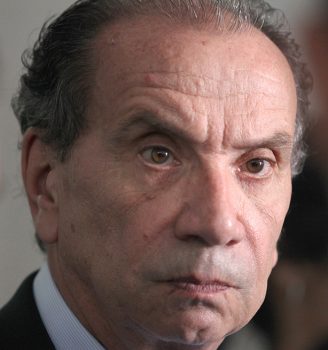SAO PAULO (Reuters) – South American trade bloc Mercosur suspended Venezuela indefinitely yesterday, adding more international pressure on President Nicolas Maduro to dismantle a newly created pro-government constituent assembly and restore democracy.

Foreign ministers of Argentina, Paraguay, Uruguay and Brazil announced the decision in Sao Paulo, urging Maduro to release prisoners and immediately start a political transition.
“We are saying: Stop with this! Enough with the deaths, enough with the repression. It is not possible to inflict such torture on the people,” Brazilian Foreign Minister Aloysio Nunes said after the meeting.
As the suspension was announced, the constituent assembly removed dissident state prosecutor Luisa Ortega from her job. Asked to comment on Ortega’s dismissal, Nunes replied with a Latin proverb: “Whom the gods would destroy they first drive mad.”
Mercosur has no provision for expulsion. It had suspended Venezuela temporarily in December for not complying with the bloc’s regulations, and toughened its stance following the controversial election of the constituent assembly on Sunday last and the arrest of several opposition leaders.
Countries around the world have condemned the vote, calling it a bid to extend Maduro’s rule indefinitely. Argentina’s Foreign Minister Jorge Faurie labelled Venezuela a dictatorship.
“It is very bad to push a brother out of the door, but it did so with conviction because we are watching a situation that causes us great pain,” Faurie said.
On Tuesday, some 14 foreign ministers from across the Americas will meet in Lima to discuss Venezuela and the group could become a permanent monitoring body, Peru’s Foreign Minister Ricardo Luna said.
“We will study a sequence of 14 or 15 collective or individual measures that our countries could take to confront the crisis,” Luna said yesterday.
Although Venezuela sits on the world’s largest-known oil reserves, millions are suffering food shortages and soaring inflation. Months of anti-government unrest have killed more than 120 people.
The Mercosur suspension will not affect trade and migration policies to avoid worsening the humanitarian crisis, Nunes said. “Venezuelans who want to come to Brazil will be welcome.”





